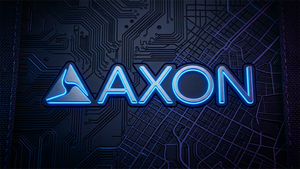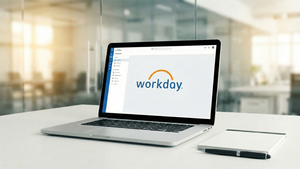89% of higher ed institutions agree that employee benefit programs can help them address the important need to attract and retain talent
Voya Financial, Inc. (NYSE: VOYA), announced today the release of new findings from its bi-annual survey of retirement plan decision-makers in the higher education sector. Voya’s findings highlight the unique challenges and opportunities facing higher ed institutions today following the COVID-19 pandemic, particularly when it comes to attracting and retaining top talent.
Voya’s research consisted of two phases:
- An online survey among retirement plan decision-makers at more than 300 higher ed institutions.
- In-depth interviews among a select group of decision-makers.
The research revealed that attracting and retaining staff are, by far, the greatest challenges facing higher ed institutions – with a majority (80%) agreeing that attracting and retaining high-quality administrators is much more important today.
“The ability to attract and retain top talent has been a challenge facing many industries, but for those in the higher education sector, it has only been exacerbated by the pandemic,” said Brodie Wood, vice president and national practice leader for Voya’s Education Market. “When you consider today’s job market with more competition for companies to find staff in general, in most cases, higher ed institutions are not able to compete with the benefit of flexibility that many jobs outside the sector offer today – such as the desire to work completely remotely, which many colleges and universities do not allow. At the same time, these challenges present many unique opportunities for these institutions to look further into their benefits offerings as an area to stand out among their peers.”
Voya’s research also revealed a majority (89%) of institutions agree that an organization's overall employee benefits program helps attract and retain high-quality employees. Specifically, key areas of opportunity for higher education institutions to focus on pertaining to employee benefits include:
- The retirement plan and employer match. When asked to identify the most important benefits for attracting talent, the defined contribution (DC) plan is No. 1, followed by paid-leave benefits and a defined benefit retirement pan. Ninety percent also agree a DC retirement plan helps attract high-quality employees, and 87% agree it helps retain high-quality employees. And, in response to staffing pressures and the pandemic, half (50%) of institutions report starting or increasing the employer match to the retirement plan since January 2021.
- A focus on holistic benefits. There is widespread agreement among plan sponsors that employees face considerable challenges when it comes to their ability to save for retirement, including: caregiver responsibilities (87%), student loan debt (85%) and the impacts of inflation (84%). As a result, some are addressing these challenges through wellness programs such as assistance with student loan repayment (49%) and planning for caregivers and employees with special needs and disabilities (42%). In addition, 83% consider the idea of matching student loan payments with a retirement plan contribution as more important today than it was pre-pandemic.
- Support and guidance in benefit decisions. While 86% of organizations agree more can be done to help employees make well-informed decisions on how to optimize their benefit dollars across workplace benefits and savings, an even greater amount (90%) agree financial guidance and advisory services offered through the workplace are a highly valued component of the overall benefits offering.
Adapting to the ‘new norm’
Voya’s survey also asked institutions about needs that have grown in importance, comparing their interest today versus before the pandemic began. While in today’s environment, several actions have become more important. Among many more priorities, those rising to the top include:
- Adopting strong socially responsibly business practices and policies across ESG areas (85%);
- Providing student loan assistance (82%);
- Developing/expanding a diversity, equity, and inclusion hiring strategy and/or programs to attract talent (81%);
- Addressing mental health issues to better support employees (80%); and
- Attracting and retaining high-quality support staff (e.g., dining services, groundskeeping, janitorial staff) (80%).
Interestingly, Voya’s research found that many colleges and universities include a description of their retirement plan in their offers to prospective job candidates, with some noting that the value of their retirement plan and their health insurance plan is more important to staff and prospective staff than other employee benefits, including non-traditional benefits.
“While benefits can play a pivotal role for many organizations to help attract and retain talent today, those in the higher education sector are faced with even more-complex needs, so it’s encouraging to see the DC plan considered to be a core tool that organizations are using to help address the challenge,” added Wood. “Knowing there are more opportunities ahead to support organizations through pending retirement legislation is also an important factor. So it’s not surprising that 88% of colleges and universities believe government support such as that outlined within current retirement legislation, i.e., SECURE 2.0, will help incentivize employees to save, improve retirement plans and lower costs for employers going forward.”
Retirement plan advisors play a pivotal role
As the retirement plan rises in importance, the role of the advisor is also growing in support. According to Voya’s research, two out of three (67%) of higher ed organizations rely on the services of a plan advisor or consultant; of those who do not, nearly all plan to hire one in the next year. When it comes to the services provided by plan advisors, organizations report a wide range of support functions, including plan design, investment review/selection, fiduciary and regulatory support, plan compliance, plan transitions and provider due diligence as well as setting up participant education programs and designing financial wellness programs.
“When it comes to supporting the overall retirement readiness of their workforce, employers today face many opportunities within their broad workplace benefits program,” added Wood. “Retirement plan advisors can play a critical role for employers to establish a plan that can both meet their needs as well as guide their employee toward a financially secure retirement. As a result, it remains a focus for us at Voya to offer solutions we know will support the financial professionals we work with and, ultimately, help facilitate better retirement outcomes for their clients.”
Voya serves workplace benefits and savings clients of all sizes and across all sectors, including public and private higher education institutions and other tax-exempt retirement plan markets. Specifically for higher education, Voya supports more than 1,500 higher education retirement plans, and the average tenure for a higher education client is nearly three decades.1 To learn more, visit VoyaHigherEducationMarket.com.
With a number of products, solutions and technologies that help employers and employees address their workplace benefits and savings needs, Voya continues to offer solutions to enable actions that can help employees achieve positive outcomes within their health and wealth benefits. This includes the recent introduction of myVoyage, a new and first-of-its-kind personalized financial-guidance and connected workplace-benefits digital platform, and the myHealth&Wealth integrated and holistic benefits selection experience.
As an industry leader focused on the delivery of workplace benefits, savings and investment solutions to and through the workplace, Voya is committed to delivering on its mission to make a secure financial future possible for all Americans – one person, one family, one institution at a time.
All data unless noted otherwise based on the results of Voya’s study of retirement plan management in the higher ed sector conducted by Greenwald Research. The study consisted of two phases – both with retirement plan decision-makers at higher ed organizations, including: an online survey conducted June 29, 2022 – July 19, 2022, among 301 retirement plan decision-makers from higher ed organizations that offer a defined contribution retirement plan, along with in-depth interviews among a select group of decision-makers conducted August 2022.
1. Voya internal data as of Dec. 31, 2021.
About Voya Financial®
Voya Financial, Inc. (NYSE: VOYA), is a leading health, wealth and investment company that provides products, solutions and technologies that enable a better financial future for its clients, customers and society. Serving the needs of 14.3 million individual, workplace and institutional clients, Voya has approximately 6,000 employees and had $644 billion in total assets under management and administration as of June 30, 2022. Certified as a “Great Place to Work” by the Great Place to Work® Institute, Voya is purpose-driven and is equally committed to conducting business in a way that is socially, environmentally, economically and ethically responsible. Voya has earned recognition as: one of the World’s Most Ethical Companies® by the Ethisphere Institute; a member of the Bloomberg Gender-Equality Index; and a “Best Place to Work for Disability Inclusion” on the Disability Equality Index. For more information, visit voya.com. Follow Voya Financial on Facebook, LinkedIn and Twitter @Voya.
VOYA-RET
View source version on businesswire.com: https://www.businesswire.com/news/home/20221025005136/en/
Contacts
Media Contact:
Laura Maulucci
Voya Financial
(508) 353-6913
Laura.Maulucci@voya.com





